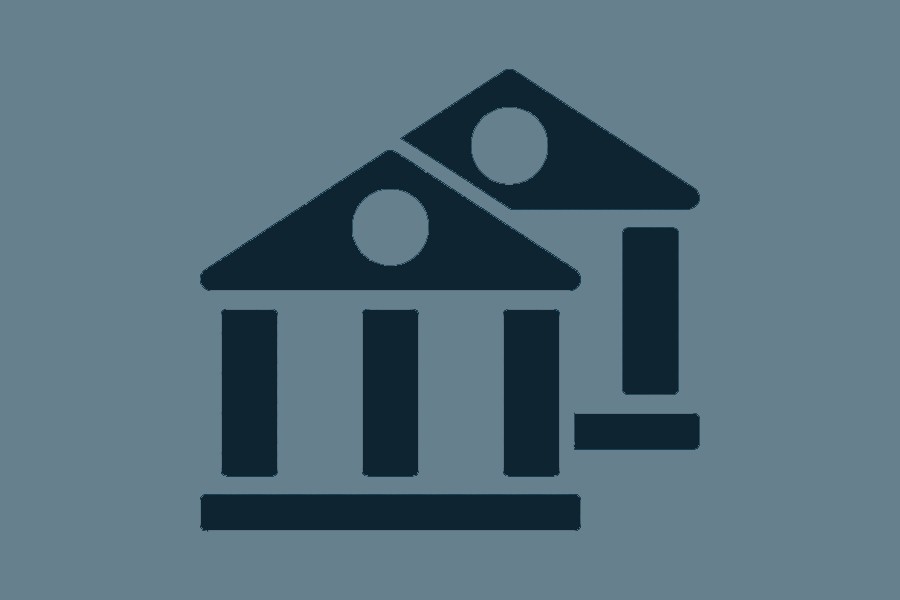Bank loans getting costlier with fresh rate rise
Lending rate to cross 11pc with regulatory rate hike by basis points from Nov

Published :
Updated :

Funds are getting costlier with the maximum rate of interest on bank credits set to be raised by 35 basis points from November as the central bank tightens fist to combat inflation, officials said.
With the latest rise, the lending rate will be crossing 11.0 per cent, which turns out to be a matter of serious concern for businesses in the current context of macroeconomic volatility locally and globally.
Under the newly introduced interest-rate-calculation regime by Bangladesh Bank (BB) from July last, the lending rate is now being fixed based on the reference rate or SMART (six-month moving average rate of treasuries) rate.
And the average cut-off yield in the auction of 182-day treasury bills continues mounting throughout this month of October following the hike in policy rate by 75 basis points, and it is basically contributing to the significant rise in SMART rate, officials said.
Central bank's officials have said the lending rate is being fixed based on the SMART rate, and the average rate of 182-day T-bills increased to 9.24 per cent this month from September's count of 7.40 per cent. The SMART rate in previous four months (August, July, June and May) were 7.33 per cent, 7.27 per cent, 7.07 per cent and 7.01 per cent respectively.
They said the SMART rate is set to be enhanced mainly because of the central bank's recent policy shift from injecting high-powered money into the economy and the recent enhancement of policy rate to contain high inflation.
Seeking anonymity, a BB official said the moving average of 182-day treasuries for the last six months until this October would be 7.55 per cent, which is 35-basis- point higher from its September rate of 7.20 per cent.
In accordance with the BB instructions, a bank can add maximum 3.50 percentage points with the SMART Rate to fix the lending rate. With the calculation, the maximum lending rate will be 11.05 per cent from November 2023.
The official said the regulator used to make market intervention with 'devolvement' mechanism on its own and meet government bank-borrowing requirements with the newly circulated money if the participating primary dealer (PD) banks placed higher bids at the auction for buying 182-day T-bills.
"As the BB refrained from using development instrument as part of its inflation-checking initiative," the official said, "the PDs are now placing comparatively higher rates and there is no market-controlling mechanism to make a balance."
On the other hand, the central bank early this month raised policy rate by 75 basis points to 7.25 per cent, which also contributes to the acceleration of the yield.
"As a result, October's weighted average cut-off yield of 182-day T-bills shot up to 9.24 per cent, which is set to impact the SMART rate in the coming November," the central banker said explaining the exigency of rate hike to make money little hard to get by.
Another BB official says the government generally meets major part of its domestic-borrowing targets from the banking system through issuing government securities - treasury bills and treasury bonds - to make up for budget shortfalls. The banks purchased the risk-free investment instruments from the auction arranged by the BB.
The central banker says the recent trading in the auctions indicates that the SMART rate continues increasing in the coming months. Many countries around the world controls inflation by raising interest rate-and the spell continues right now.
"In that context, it is a good thing as the BB plans to curtail the inflation below 8.0 per cent by coming December," the official adds.
On the other side of the aisle in the run of the economy, growing lending rate becomes a pain in the neck of businesses under the current macroeconomic situation that goes on experiencing turns and twists in the wake of global volatility.
A business delegation led by FBCCI president Md Mahbubul Alam last month met with BB governor Abdur Rouf Talukder and requested the governor for taking measures to stop the upswings in bank-lending rates.
Contacted about the conundrum, the FBCCI president said the private sector had already been under immense pressure because of multiple factors, like recent tariff hikes of power and energy, ongoing dollar dearth and frequent depreciation of the local currency against the American greenback.
"Look at the data of private-sector-credit growth, which is the lowest in recent times. If the cost of borrowing goes up further, it will be a huge burden to absorb for the entrepreneurs," the leader of the country's apex trade body said about the domino effect of costlier funds on the economy as a whole.
Calling upon the authorities of the central bank, Mr Alam sought immediate steps from the BB so that the lending rate does not increase frequently. "Otherwise, the industrialisation-and job-creation process will severely be affected."
jubairfe1980@gmail.com


 For all latest news, follow The Financial Express Google News channel.
For all latest news, follow The Financial Express Google News channel.